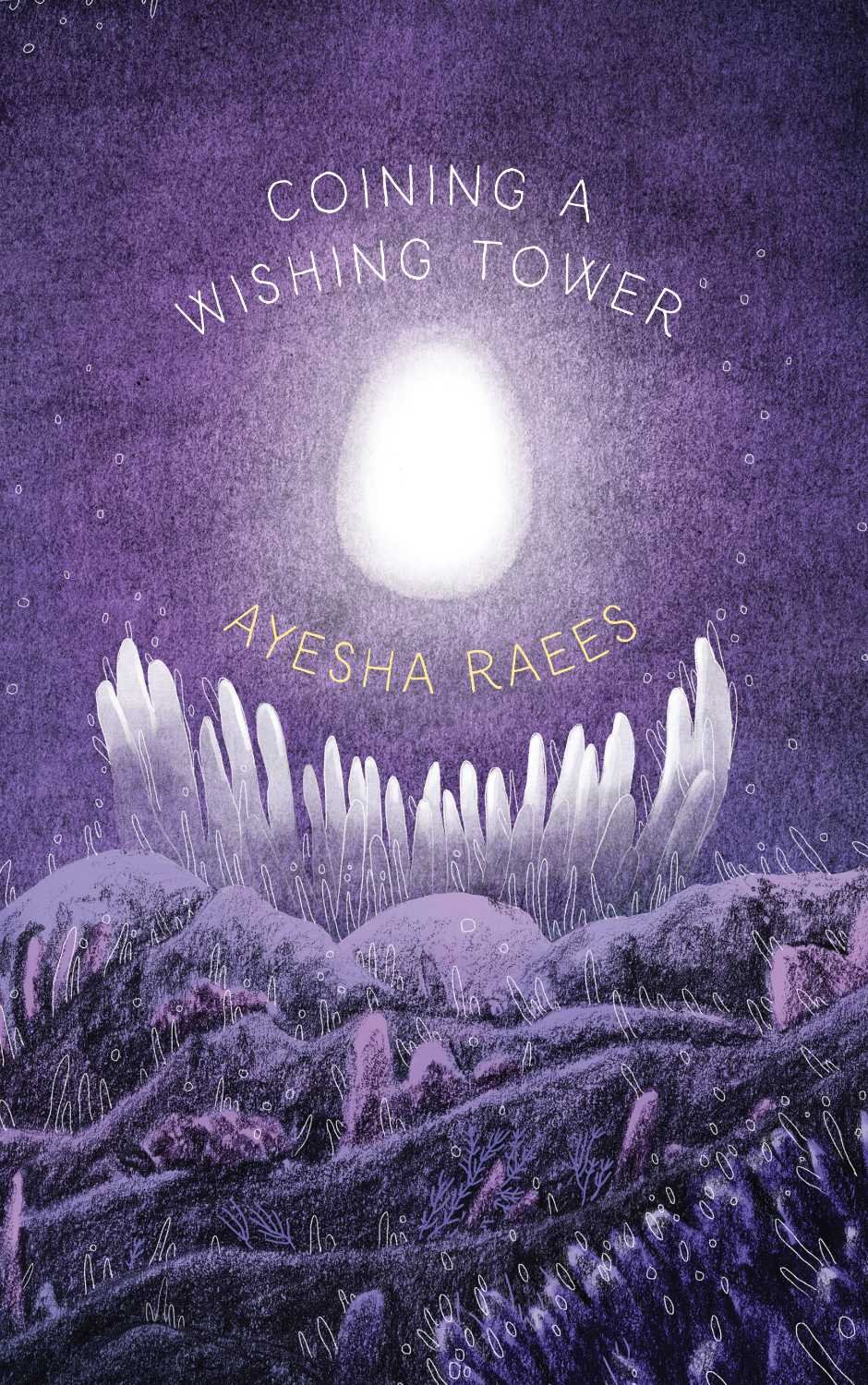Coining a Wishing Tower
Coining a Wishing Tower by Ayesha Raees, Platypus Press, 15 euros
“The earth is too strong, and the sky is, in the end, just a halfway between two somewheres.”
I have a bookmark with a quote on it from famed American author Octavia Butler that reads, “good stories are good stories, no matter how they’re categorized.” This is a necessary reminder that whether we are reading a poem, watching a TV show, or listening to an audiobook, we are looking for the same thing; a work that may help us forget the pain of our circumstances for a time, but also something that reminds and teaches us what it means to be human. I enjoy reading works that are hard to categorize because they reveal that the distance between genres is not that wide, and that many of our assumptions about genre itself should be reassessed. Coining a Wishing Tower by Ayesha Raees is such a work.
The book is comprised of fifty-six pieces that lie somewhere between prose poetry and flash fiction. In her bio, Raees describes herself as “a hybrid creating hybrid poetry through hybrid forms.” That is pretty much the best line from an author bio I have ever read and perfectly describes my experience of reading her book. The work is thoroughly poetic due to Raees’ unique style, using words in new or rare ways. For instance in the line, “the radiators bang, echoing throughout the house’s empty” the substitution of “empty” for “emptiness” creates an entirely different effect, allowing you to hear and feel these sensations in a more visceral way. At the same time, the fifty-six pieces in the collection feel like complete stories in themselves, despite their brevity. “The giant wooden house in New London, Connecticut, was populated by one human, one cat, and Godfish. The human was the least important presence in the house for it was seldom there.”
And while each piece functions well on its own, it is also part of the larger narrative structure of Coining a Wishing Tower. This structure consists of two interlocking halves, one half is set in a recognizable real world and the other is set in a more fantastical place. In this way, the book reminded me of Haruki Murakami’s novel Hard-boiled Wonderland and the End of the World. While reading it I also thought of David Lynch’s Twin Peaks, and its haunting Black Lodge.
The more realistic setting mainly recounts the narrator’s childhood and her relationship with her parents. Major life events are recalled such as the death of a loved one, “my nani was lying on the charpai, cleaned and wrapped in cotton cloth, her wrinkles unmoving.” The narrator often seems stuck between a troubled father, “my father launches into lament soaked in advice” and a religious mother, “The first time you see the Ka’bah, my mother whispered, filling my ear with an excitement rare for her disposition, any wish you wish will come true.” But through it all, the narrator is determined to survive and chart her own spiritual path to adulthood. She ruminates on religious topics with reverence and a healthy dose of humor as well.
The more fantastical setting revolves around three compelling characters: House Mouse, Godfish, and cat. While House Mouse is on a solo journey towards enlightenment, one could describe Godfish and cat as magical house pets. I cannot overstate the raw imaginative power with which Raees creates this setting. I found myself deeply entranced by a world that seemed both mythical and yet utterly believable. With statements like, “House Mouse was running to the mountains and nothing became of any of its climbs” and “burdened by monotony, Godfish entices the moon” readers will be hooked, regardless of their categorical expectations.
As I read Coining a Wishing Tower, I realized more and more how these two halves of the narrative structure were connected. Combined they take the reader on a unique spiritual journey that feels both new and old. At last transcending any mere genre in the most satisfying of ways.
Benjamin Schmitt
Benjamin Schmitt is the author of four books, most recently The Saints of Capitalism and Soundtrack to a Fleeting Masculinity. His poems have appeared or are forthcoming in Sojourners, Antioch Review, The Good Men Project, Hobart, Columbia Review, Spillway, and elsewhere. A co-founder of Pacifica Writers’ Workshop, he has also written articles for The Seattle Times and At The Inkwell. He lives in Seattle with his wife and children.


